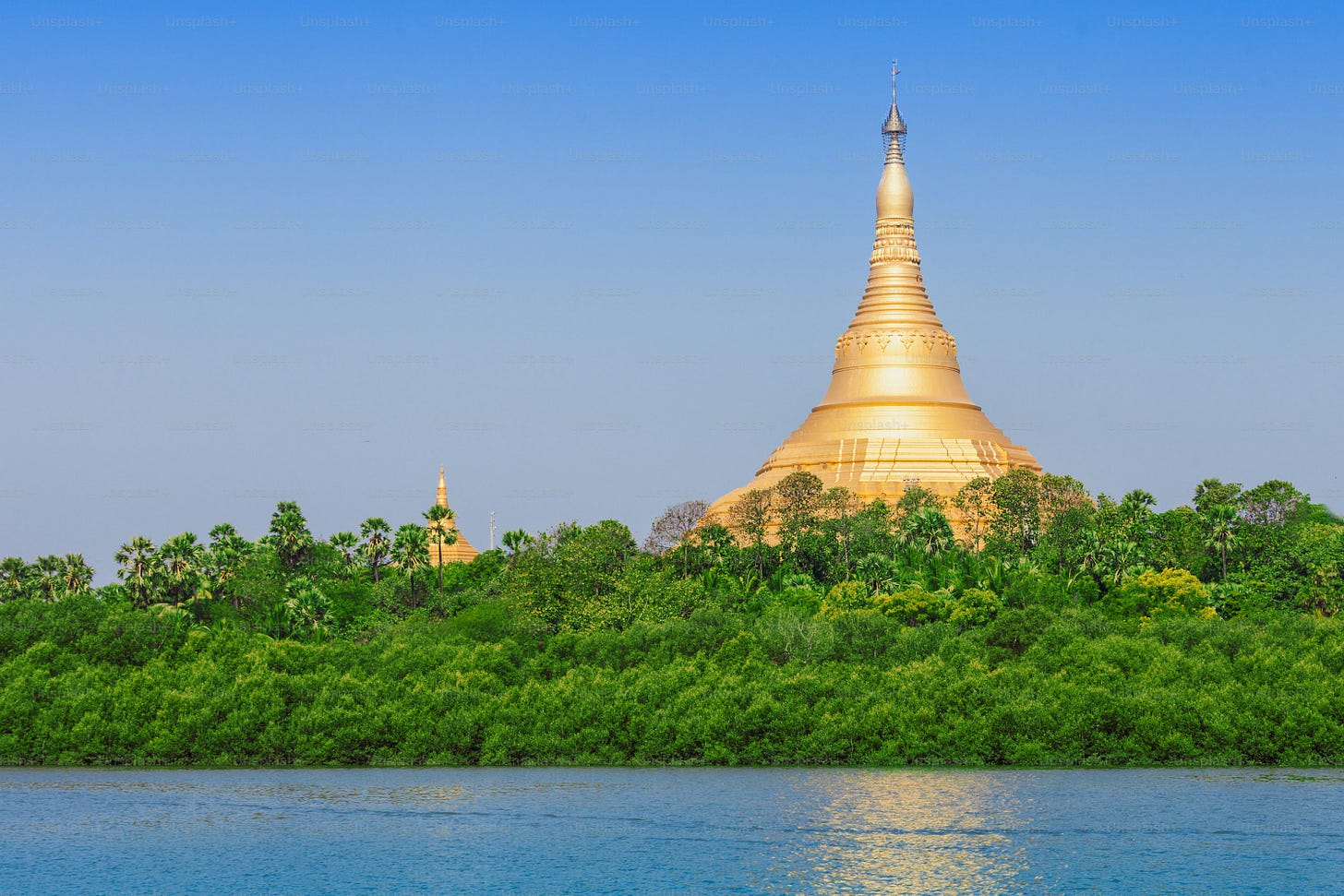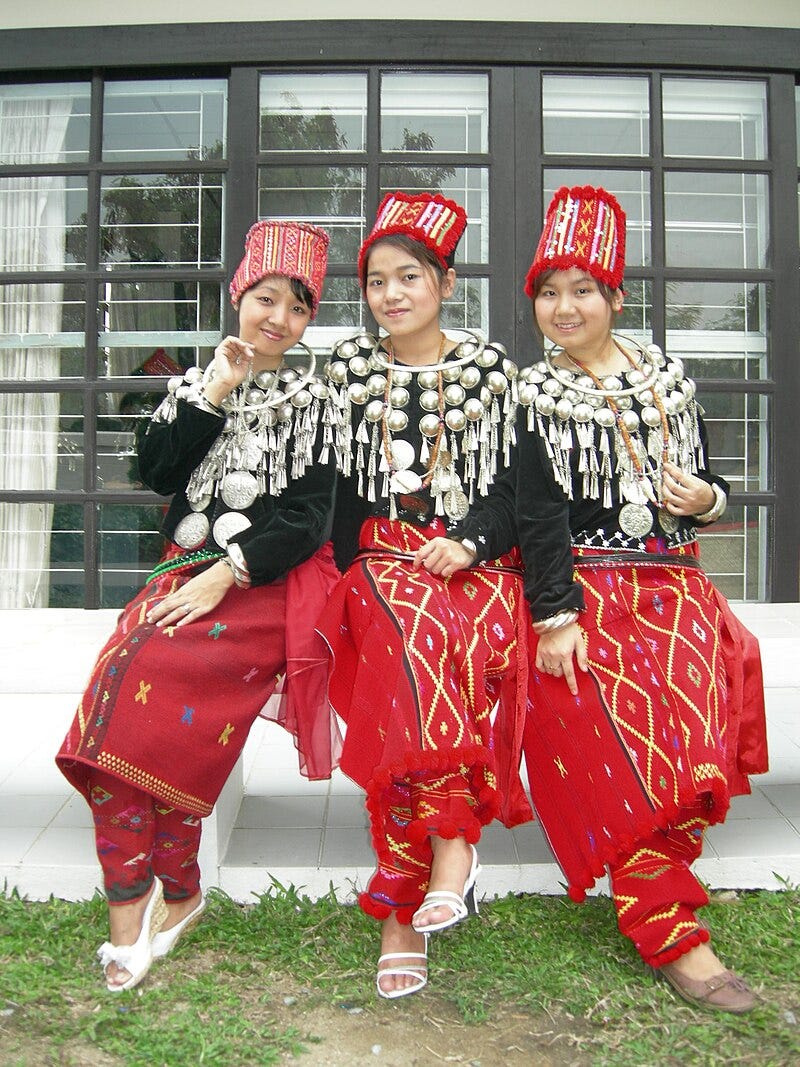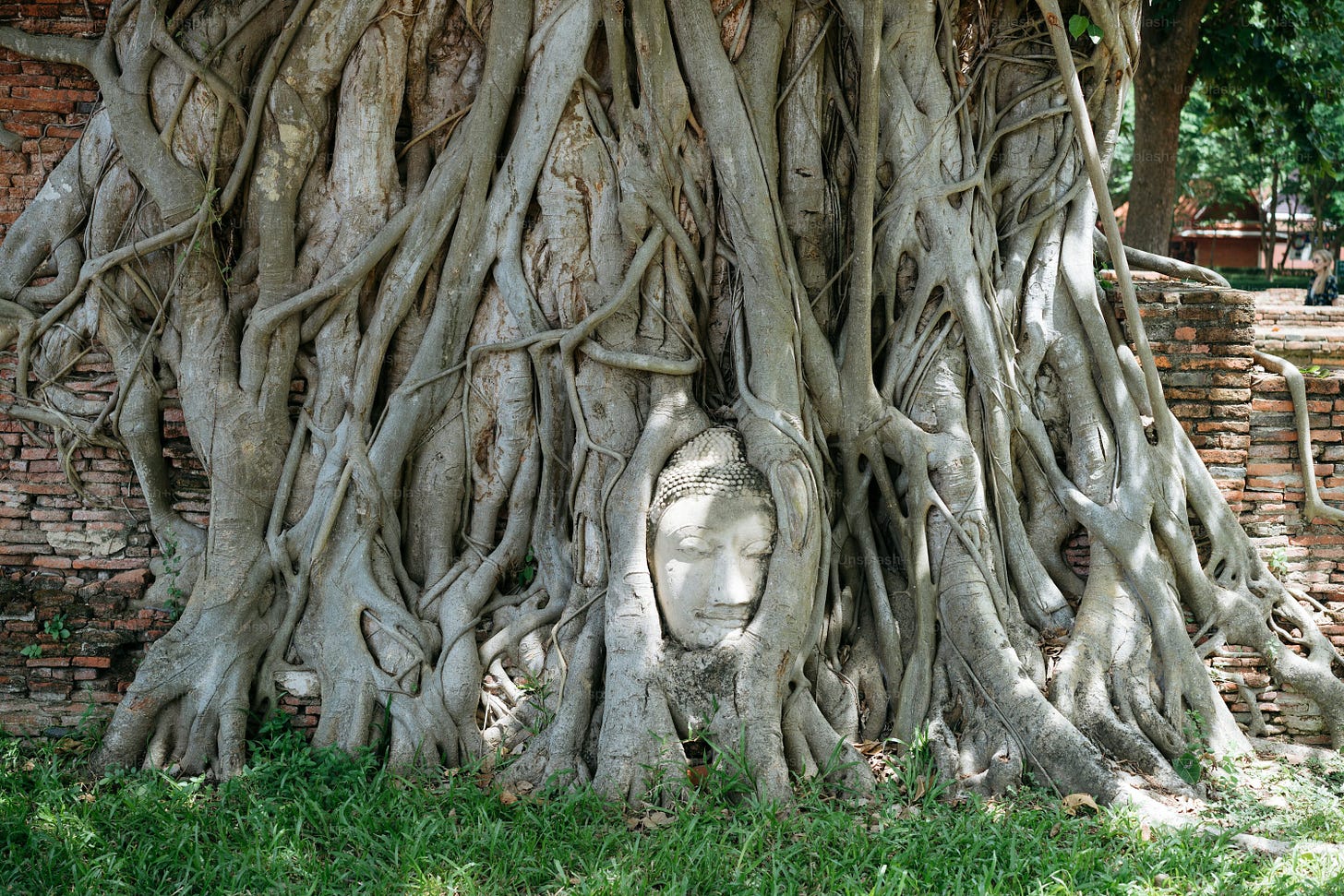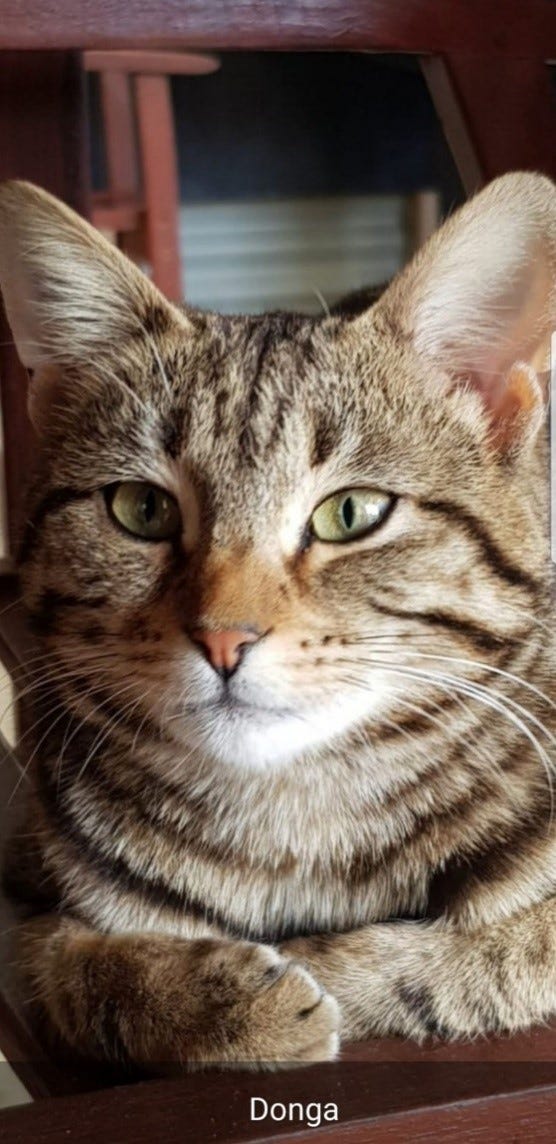Bhamo, Burma – a sleepy town beside the Irrawaddy River
Where the Kachin State Locals fight for democracy – never dither Lady Donga’s Wanderlust Diaries Burma - Wanderlust Four Narrator – Lady Donga
Lady Donga’s Wanderlust Diaries
Burma - Wanderlust Four
Narrator – Lady Donga - Pussycat
This Burmese adventure continues from Burma Wanderlust Three, …as my human slave Seaspray D narrates as follows:
…. the thin brown airstrip of Bhamo loomed ahead, and then with a bump, shudder, and squealing tires – our plane arrived safely.
I stepped down from the F –27 turboprop, walked the short distance across the tarmac to the terminal where I submitted my passport for inspection – in the gaze of some thirty military personnel.
The military officials grinned bright red betel nut-stained crocodile smiles as they strangely passed my passport for special viewing along the long line of thirty soldiers and sixty eyes.
All good though, and soon a rickshaw took me for a leisurely ride to the ‘Friendship,’ - the only hotel in town allowed to admit foreigners.
Travelling by rickshaw gives one a real sense of experiencing life at street level.
After Rangoon, the air was refreshingly cool, the streets lined with trees whitewashed at the base, so that they also act as road posts.
Bhamo had a real ‘homey’ feel to it.
In contrast the Friendship Hotel was a concrete monstrosity, with little character at all, unlike other more charming hotels in town that foreigners were forbidden to stay at.
Bhamo had only recently been ‘opened’ to foreign travelers, and it certainly felt like it.
Just walking down the main street caused quite a commotion.
Perhaps it was my long white legs wrapped at the top with super short black shorts.
Innocent, friendly, and perhaps even lusty stares and fingers pointing at my long legs - assured that I was the afternoon entertainment in this small town, on the banks of the Irrawaddy River.
Later, while looking for the Bhamo Water Transport office to purchase my ferry tickets to Mandalay, I came across a rather pleasant riverside café emitting gastronomically delightful mouth-watering smells.
Nearly everything on the menu was not available, so I stuck ordered just about everything one could have on a stick – grilled on the BBQ: potatoes, okra, eggplant, onion, chicken feet and pork innards.
Feeling a trifle queasy about chewing on such exotic fare like pork innards, I stuck to the veg, and quite nice it was too, roasted over hot coals.
Walking south along the edge of the river I chanced upon a Hindu temple situated among the best real estate in Bhamo.
It was there I met with a rather delightful family who were of Nepalese heritage.
The family had been in Bhamo for generations. I sat and chatted the sun set over the Irrawaddy River.
The Mandalay boat tickets would have to wait until tomorrow, and with cool air affecting my exposed legs, an early night was in order!
On the way back to the Friendship Hotel an elderly Indian chap approached, informing me that he worked for government, and had the power to show places that were normally out of bounds for visiting westerners.
He said he would come to the hotel in the morning to take me on a tour of the surrounding countryside that was normally restricted to a radius of five kilometres for foreigners.
I said I might just do that after our visit to the market, so he could meet us there if he wished.
I awoke to a new day, crisp and cool and refreshing.
The market I wished to visit was a short five-minute stroll down a gentle incline towards the river.
Signs on the way, in both Burmese and English, warned of the death penalty for drug trafficking.
Was that why I was not permitted to travel beyond the allocated radius?
Were they protecting travelers from drug warlords, or preventing me from seeing acre upon acre of flowering opium poppy fields which were currently in season?
But then perhaps they were making a genuine effort.
Not a soul offered us drugs for consumption, no invites to the local opium den either.
Other signs declared ‘please assist the foreign traveller in whatever way possible.
So, as it appeared if they (the local authorities) were gearing up for tourists, perhaps it would be wise to let the other hotels in town accept them, and not let the ‘Friendship’ monopolize the market – more friendly don’t you think?
The local Bhamo zay (market), was orgasmic candy for the eye.
Slender tall fair Kachin (Jingphaw) women worked diligently over their sewing machines, powered by their feet, sewing fabrics that were ironed with irons powered by charcoal.
The market is dark inside, so it is surprising they can see at all.
Above each woman sits a vase of flowers, orchids and maybe a Buddha or two to watch over them.
Beside the ladies sits a thermos of Chinese tea, and a series of stainless-steel containers that most likely contain their lunch.
The slender women work almost zombie like, but are not necessarily unhappy, as their real smiles come easily, so I guess they are just focused on the job at hand.
Their white teeth contrast with their jet-black ponytail hair, hung low as their calf muscles.
The next aisle revealed a rice stall where women were busy husking rice, throwing it into the air repeatedly until the task was completed.
The rest of the market could quite aptly be described as seen in George Orwell’s first novel, Burmese Days.
From 1922 to 1927 George Orwell served with the Indian Imperial Police in Burma, with experiences in Katha (Kyauktada - downstream from Bhamo) that inspired him.
Mr Orwell’s Zay observations as follows: The merchandise was foreign looking, queer and poor. There were vast pomelos hanging on strings like green moons, red bananas, baskets of heliotrope-coloured prawns the size of lobsters, brittle dried fish tied in bundles, crimson chilies, ducks split open and cured like hams, green coconuts, the larvae of the rhinoceros beetle, sections of sugar cane, dahs, lacquered sandals, check silk longyis, aphrodisiacs in the form of large soap like pills, glazed earthenware jars four feet high, Chinese sweetmeats made of garlic and sugar, green and white cigars, purple brinjals, persimmon-seed necklaces, chickens cheeping in wicker cages, brass Buddha’s, heart shaped betel leaves, bottles of kruschen salts, switches of false hair, red clay cooking pots, steel shoes for bullocks ,papier-Mache marionette and, strips of alligator hide with magical properties.
While the markets were fun, it was time to take my purchases back to the hotel and look for something for lunch. An Indian tea-shop seemed like a good idea and before long I found one, and who should be there, yes, the elderly Indian chap, Mr Vindaloo, I had met the day before.
A rather scrumptious lunch of vegetable curry with roti was washed down with several cups of tea over sweetened with ‘nozineh’ (condensed milk).
It was here I discussed politics for the first time, as most individuals are reluctant to, for fear of retribution by the authorities, which normally means imprisonment for the accused and their innocent families.
The old Indian chap spoke freely of human rights abuses committed by the junta and the lack of freedom of speech that goes with oppression.
Mr Vindaloo is a supporter of Aung San Suu Kyi’s National League for Democracy (NLD) party, and said most Burmese are.
Even if they are not members of the NLD, they all wished for the current ruling military junta ‘SPDC’ to hand over the reins of power.
The old man who sat beside Mr Vindaloo was a former soldier of the Kachin Independence Army (KIA) had a large chunk missing from his right leg, wounds he received fighting the junta.
Both men had served during the Second World War on the side of the British and Americans against the Japanese.
American General Joseph ‘vinegar Joe’ Stillwell proposed the construction of an all-weather, two-lane road from India to China via Northern Burma.
A huge contingent of American engineers finished off the road the British had begun earlier, from Ledo in India, to Bhamo, before extending onto Wanting in Yunnan province in China, and south to Mandalay via Lashio.
This road, which eventually ends up in Kunming is in poor condition, and sees much traffic as a major smuggling route for opium, heroin, gems, jade, and teak.
The junta has now made the grey area trade illegal and legal, much easier than in the past by making the border crossing at Mu-se, a legal overland port of entry from China about 50 km from Bhamo.
Mr Vindaloo offered to take me on a trip to the outskirts of Bhamo.
But first I would purchase tickets for the boat trip down the ‘waddy’ at the water transport office.
I had just left the hotel with our friend; by some coincidence (or by design) Mr Vindaloo met a friend of his who would accompany us to the office.
At the office things were fine, or so I thought. I had $60 cash to purchase my passage for one bunk in a cabin. But no, the guy wanted the exact amount – US $54. I said how about $50 US and the rest in Burmese kyats. But no, not possible, so back to the hotel to change the $10 US into the right change – just to appease the ticket seller.
Tickets in hand I returned again to the hotel.
Mode of transport, why horse and cart of course!
So here we were, four adults riding in the cart towed along by this poor old horse.
The horse was probably not aware that he had such esteemed international clientele on board.
Firstly, his owner driver – a Bangladeshi Muslim, next our Hindu Indian guide, who claimed he taught English to Burmese Military Intelligence (MI), next the Buddhist Burmese friend of the Indian - Mr Sein Win, (Mr Diamond) and of course myself – the dinky die son of a kangaroo down under!
Clip clop clip clop down the road, and off to Sampanago we did go!
Sampanago was once a thriving city in an ancient Shan kingdom; today it is a sleepy village with fine views towards India in the west, and China to the east.
A portion of the old city walls can be seen outside the huge Buddhist temple complex that is surrounded by the usual revered Bodhi trees, (ficcus religiosa), the banyan variety that lord Buddha sat under and attained enlightenment.
To show my appreciation for their hospitality, I invited the guides out for dinner to one of the local Chinese cafés.
Reluctant at first, they were more relaxed when the proprietor found a table out the back, out of the eye-shot of passing military intelligence.
The back room gave us more opportunity to talk politics, subtly though, as Mr Vindaloo said discreetly that he was paranoid about his Burmese friend.
I would say it was the other way around as Vindaloo’s eyes sure looked shifty. Both spoke of their sadness when Aung San Suu Kyi’s husband, Oxford don Dr Michael Aris, dying of prostate cancer, was refused a visa by the junta to visit his wife before his final passing.
Subsequently on his death, they joined thousands at a protest in Rangoon outside the British and American Embassies.
A protest against the then State Law and Order Restoration Council (SLORC), who have since changed their name to State Peace and Development Council (SPDC), from advice given to them by an American PR firm.
Dinner was over, and as I had an early boat to catch down the Irrawaddy River the next morning, goodbyes and good-nights were said, before I made the short walk around the corner to the not so friendly - Friendship Hotel!
Next episode - A Slow boat journey down the Irrawaddy River
MeooooooooooooooooooooooooooooooooooooooooooooooooooW for now dear readers
Until next time
With Love - Lady Donga’s Wanderlust Diaries – © 2024











